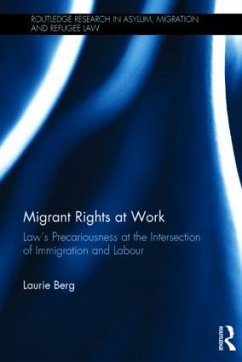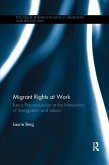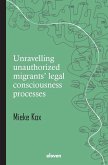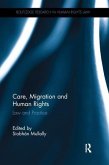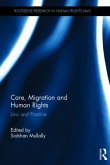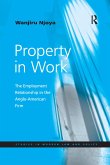This book examines the ways in which immigration law and enforcement reconfigure the relationships between migrant workers and employers, worsening working conditions by building coercion and uncertainty into them. Public debates about immigration and membership have intensified alongside developed economies' increasing reliance on temporary migrant workers. International Labour Organisation protections for migrant workers, regarded as among 'best practice' safeguards for social rights, enjoy little ratification by either sending or receiving countries. Not a single western state has become party to the United Nations International Convention on the Protections of the Rights of All Migrant Workers and their Families. A decade of regulatory reforms targeting migrant worker exploitation in Australia forms the core case-study through which these concerns are traced, as issues common to migrant worker schemes internationally have arisen in Australia comparatively recently. Through its focus on the Australian example, the book demonstrates that myriad mechanisms are productive of precariousness, most of which are endemic to immigration controls across Europe and North America. In presenting an analytical approach to issues of temporary labour migration, the book develops a unique theoretical framework, contending that the concept of precariousness, rather than equality or vulnerability, is the most fruitful way to evaluate and ultimately solve problems of temporary migrant labour. This book will be of great interest to scholars and practitioners of immigration and employment law and policy.
Public debates about the terms of membership and inclusion have intensified as developed economies increasingly rely on temporary migrant labour. While most agree that temporary migrant workers are entitled to the general protection of employment laws, temporary migrants have, by definition, restricted rights to residence, full social protections and often to occupational and geographic mobility. This book raises important ethical questions about the differential treatment of temporary and unauthorised migrant workers, and permanent residents, and where the line should be drawn between exploitation and legitimate employment. Taking the regulatory reforms of Australia as a key case study, Laurie Berg explores how the influence of immigration law extends beyond its functions in regulating admission to and exclusion from a country. Berg examines the ways in which immigration law and enforcement reconfigure the relationships between migrant workers and employers, producing uncertain and coercive working conditions. In presenting an analytical approach to issues of temporary labour migration, the book develops a unique theoretical framework, contending that the concept of precariousness is a more fruitful way than equality or vulnerability to evaluate and address issues of temporary migrant labour. The book will be of great interest to scholars and practitioners of immigration law and employment law and policy.
Hinweis: Dieser Artikel kann nur an eine deutsche Lieferadresse ausgeliefert werden.
Public debates about the terms of membership and inclusion have intensified as developed economies increasingly rely on temporary migrant labour. While most agree that temporary migrant workers are entitled to the general protection of employment laws, temporary migrants have, by definition, restricted rights to residence, full social protections and often to occupational and geographic mobility. This book raises important ethical questions about the differential treatment of temporary and unauthorised migrant workers, and permanent residents, and where the line should be drawn between exploitation and legitimate employment. Taking the regulatory reforms of Australia as a key case study, Laurie Berg explores how the influence of immigration law extends beyond its functions in regulating admission to and exclusion from a country. Berg examines the ways in which immigration law and enforcement reconfigure the relationships between migrant workers and employers, producing uncertain and coercive working conditions. In presenting an analytical approach to issues of temporary labour migration, the book develops a unique theoretical framework, contending that the concept of precariousness is a more fruitful way than equality or vulnerability to evaluate and address issues of temporary migrant labour. The book will be of great interest to scholars and practitioners of immigration law and employment law and policy.
Hinweis: Dieser Artikel kann nur an eine deutsche Lieferadresse ausgeliefert werden.

